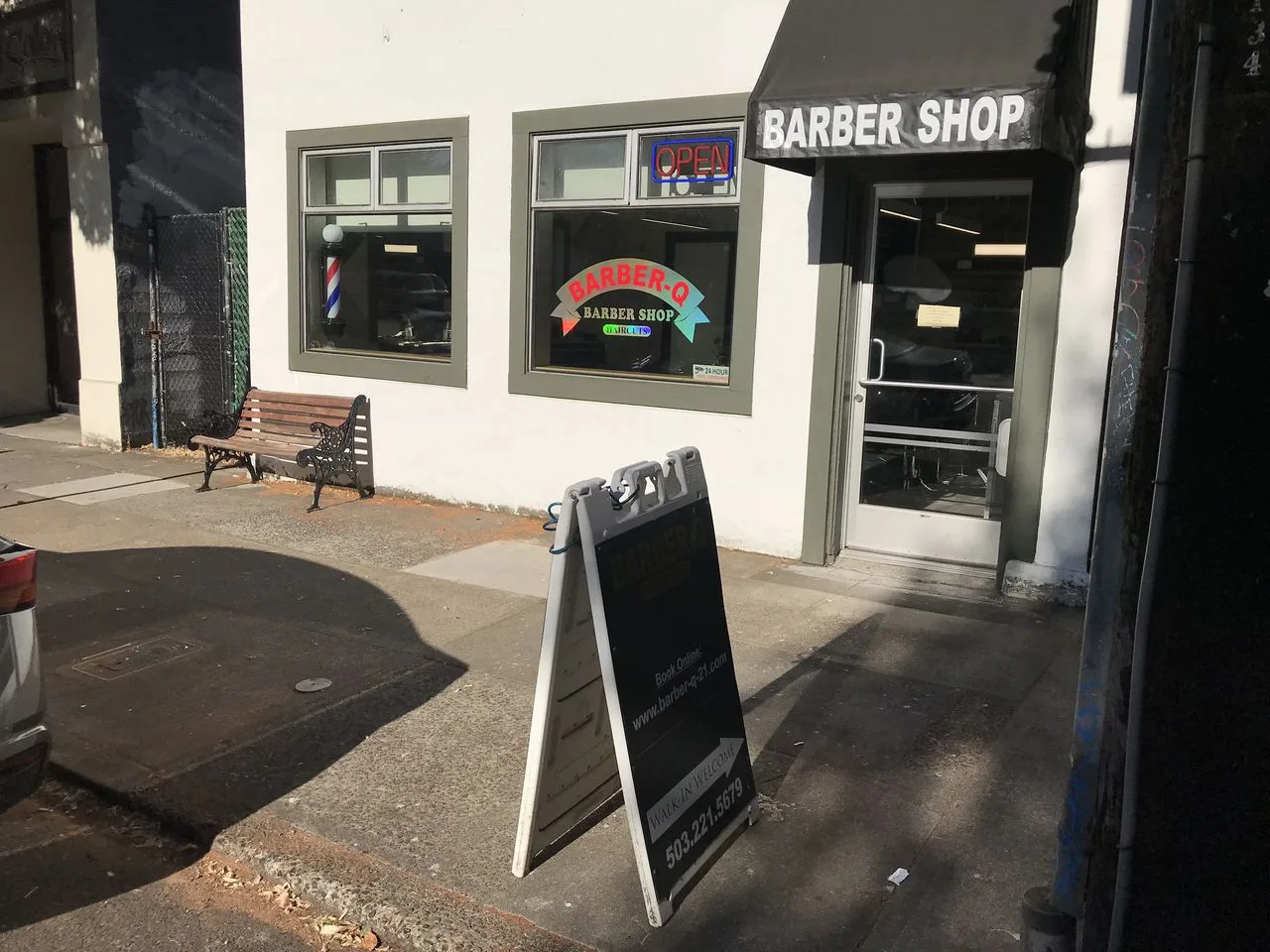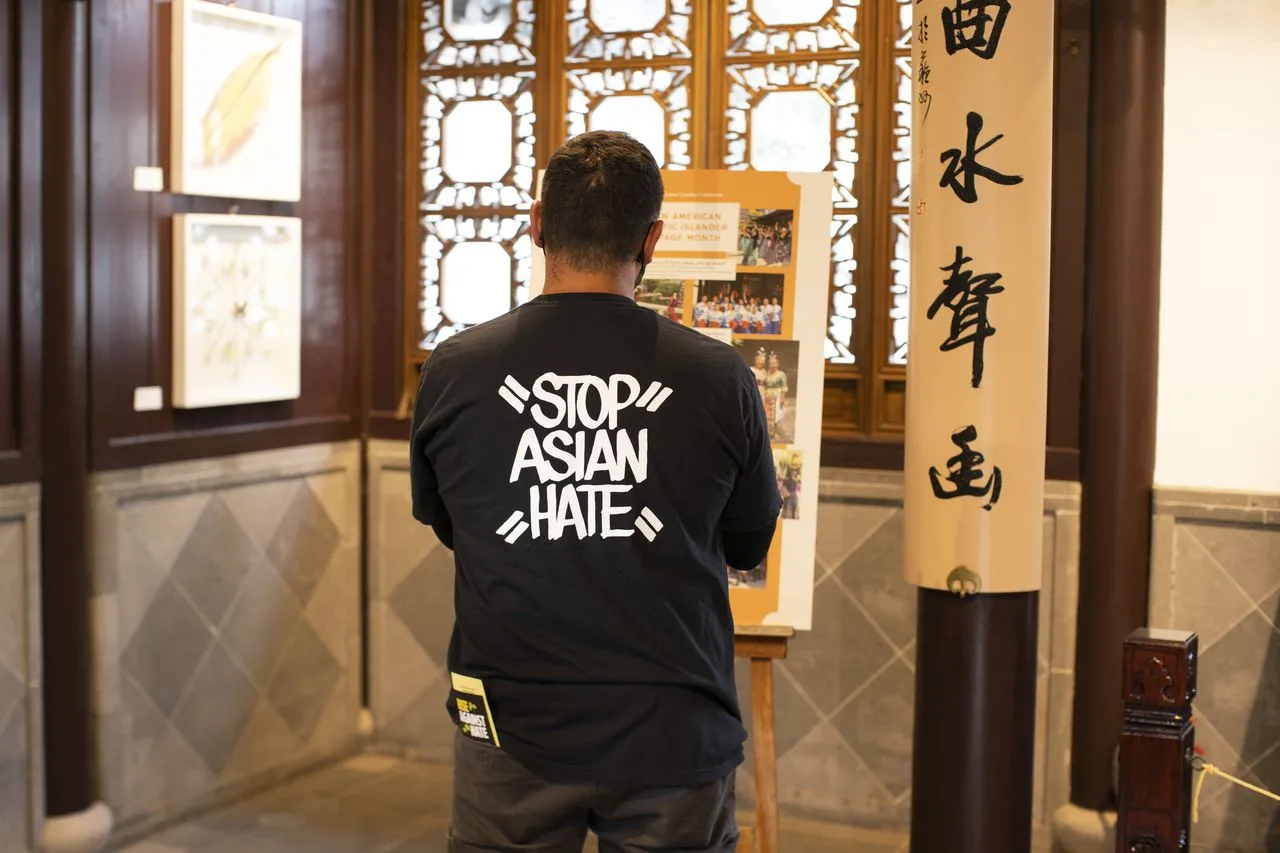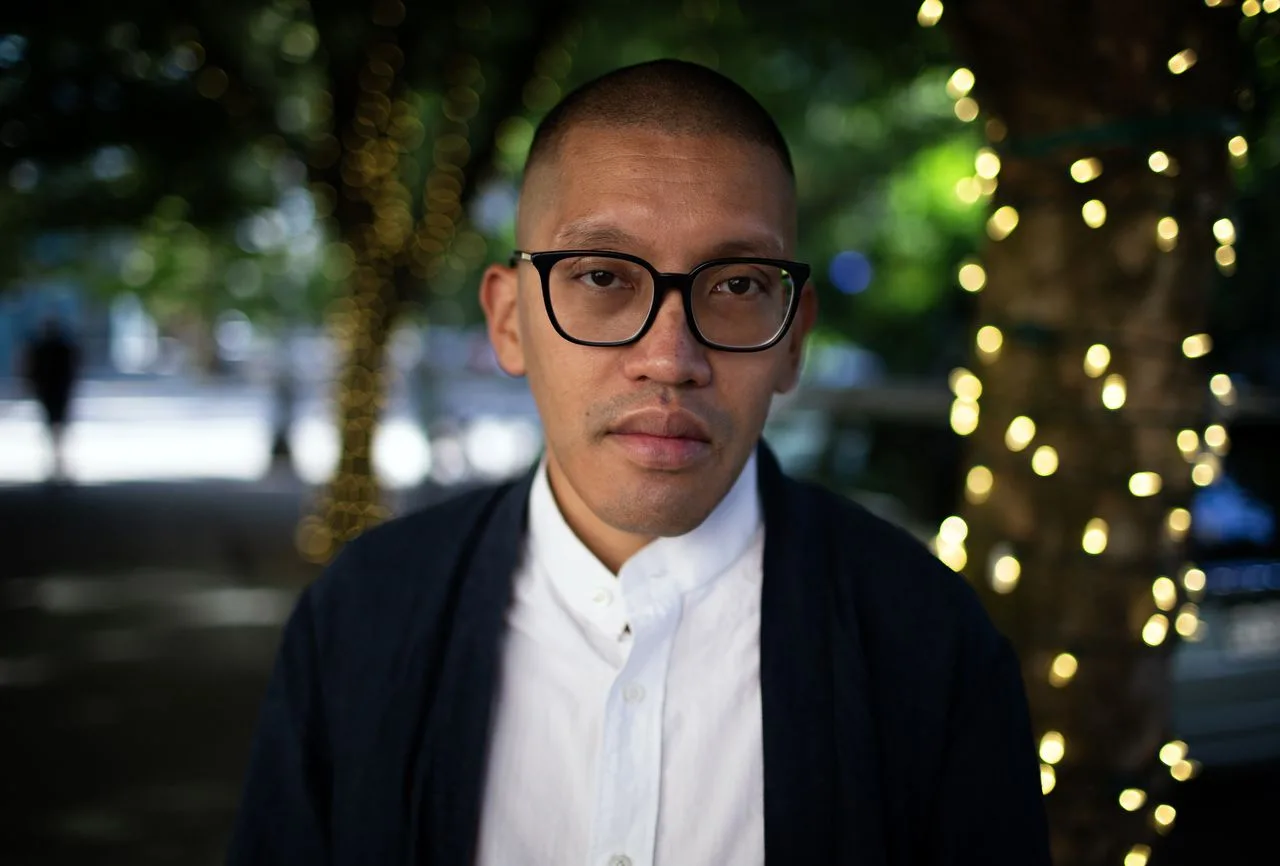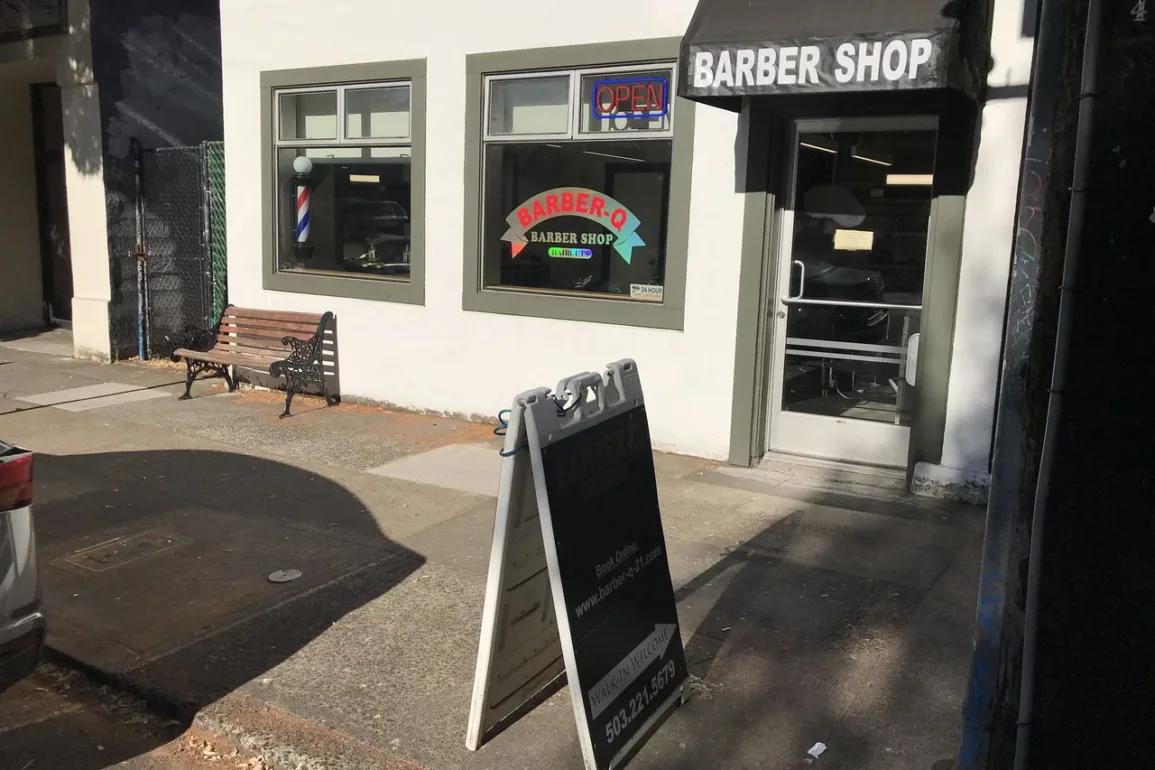Mahriah Zimmerman says her multiracial family of three lived in terror as a white neighbor at their South Waterfront condo sprayed bleach and threw lit cigarettes at her 4-year-old son, pounded on the common walls of their condo in the middle of the night and threatened to shoot her entire family. That was all while screaming antisemitic and racist slurs directed at the three of them, including her son and his dad, who are Black.
It was her son’s introduction to racial hatred and bigotry.
“I had to explain to him what the N-word was,” Zimmerman said. “He had never heard that word before, ever.”
After making multiple reports and sharing video evidence of the neighbor’s rants, Zimmerman said she was stunned by the response from the Portland Police Bureau and the Multnomah County District Attorney’s Office: Miscommunication and inaction. Although police arrested the neighbor, prosecutors let her go the next day and never filed any charges against her.
The reason? Emails and notes show the Multnomah County District Attorney’s Office asked police last year to gather more evidence. Police said they have no record that prosecutors were left wanting more.
Prosecutors say they didn’t get the information they needed so the case went nowhere.
Zimmerman’s case illustrates a small but significant trend: Even in Portland, the most liberal bastion in a left-leaning state, hate crime cases fail in avoidable ways.
The Oregonian/OregonLive reviewed the prosecution of cases in the three counties that comprise the state’s most populous region — Multnomah, Washington and Clackamas.
While Multnomah County has had some of the most aggressive hate crime prosecutions in Oregon — convicting more defendants per capita than many other parts of the state — it also is home to some devastating defeats. Among the three metro counties, it has the highest rate of hate crime case failures over the past year.
Last year — after nearly a year of torment for Zimmerman’s family and a successful lawsuit from the condo association fining the woman more than $100 per day for her ongoing threats to multiple neighbors and staff — the neighbor moved out. The intimidation and screaming stopped without any help from the criminal justice system.
“It makes me so angry at Portland,” said Zimmerman, 44. “The system failed us.”
Police and prosecutors share the blame. Stretched thin, police don’t always investigate reports thoroughly or act on prosecutors’ requests for follow-up. Prosecutors also fail to vigorously charge cases.
One in three cases that police forwarded to the Multnomah County District Attorney’s Office in 2022 didn’t result in prosecutors filing hate crime charges, including some for legitimate reasons.
And problems can persist even after charges are filed. That’s true in the case of Dennis Cote, a Filipino American man who suffered a broken nose and a concussion after he was pummeled by a stranger. Six months after Multnomah County prosecutors brought charges, the case sat stagnant for more than a year — until reporting from The Oregonian/OregonLive revived it.
Multnomah County District Attorney Mike Schmidt defended his record and said prosecuting hate crimes remains a priority. Uncharged cases, he said, represent a “small number” of overall hate crime cases in the county.
Schmidt took office in August 2020 amid a surge in shootings, murders and property crimes later made worse by the ballooning fentanyl crisis. A failed behavioral health system further strains the DA’s office as reports of hate crimes increase — including those allegedly committed by people with mental illness.
That said, ensuring cases don’t fail wasn’t all on his office, he said.
“You’re talking about a complex system that involves police and judges and yes, we’re part of that complex system,” Schmidt said.
Advocates for hate crime victims say regardless of who is at fault, the result is the same.
“Each individual case sounds like an isolated case,” said Hongcheng Zhao, president of the Oregon Chinese Coalition. “But you put them together and it’s a systemic problem.”
‘It’s not OK to terrorize people’
Schmidt’s overall track record includes some groundbreaking work. Last fall, Multnomah County prosecutors garnered a hate crime conviction against a man who created a “substantial inconvenience” for an immigrant and refugee organization in Northeast Portland by affixing a Nazi sticker to the non-profit’s fence. The “substantial inconvenience” that made his act a crime was that someone from the organization had to peel the sticker off.
But advocates for hate crime victims say there have been failures, too, and each matters profoundly to members of targeted communities.
“It’s about priorities,” Zhao said. “It’s extremely symbolic. It sends a message to society — to whoever wants to commit these crimes — that you don’t have to worry about any legal consequences.”
Thomas Morgan, who is both Jewish and queer, said he was deeply disappointed that the stranger who attacked him outside of a Northwest Portland barbershop in December 2022 wasn’t prosecuted for the crime. The man has a history of assault, harassment and hate crimes stretching back 20 years.

A man threw this barber shop’s sandwich board sign at Thomas Morgan. Morgan is disappointed in the lack of consequences for the man. He said it feels like Portland is unwilling to address the growing crises of homelessness, mental illness and bigotry.
Morgan, 59, said the man made a beeline for him, uttered an antisemitic statement and announced that he was about to seriously hurt Morgan. He then threw the barbershop’s large sandwich board at him and spat on his leg. Morgan said he wasn’t hurt because he dodged the sign as it flew through the air. And although Morgan told police the man’s spit landed squarely on his pants, the man told police his saliva hit the ground. Where the spit landed is important to how prosecutors could have charged the case.
According to the district attorney’s office, prosecutors emailed police, asking them if they’d seen the saliva on Morgan’s pant leg or taken a photo of it. Because police never got back to them, prosecutors never filed charges. And the DA’s office promised not to prosecute the man for attacking Morgan in a plea deal stemming from an earlier hate crime case. In that 2021 case, the defendant doused a TriMet employee with milk in an act of racial hatred.
Morgan said he never knew why Multnomah County prosecutors dropped his case against the man, who was homeless but denied any mental health problems. The outcome has left Morgan “disgusted” with the justice system.
“What, do they have to wait until there is bloodletting?” Morgan said. “It’s not OK to terrorize people.”
Haley Shirley, 27, says she also has felt unprotected by the justice system since the fall evening in 2021 when she drove to her cousin’s house in North Portland for what was supposed to be a fun girls’ night of streaming movies. As she was parking, Shirley said a man emerged from his home, ran up to her car and began kicking it. He called her a racist slur that’s meant to demean Black people, then pulled on the locked driver’s side door handle as he tried to get in.
“He started yelling at me ‘What the f— are you doing in this neighborhood? You are not welcome here, (racist slur)! I’m going to f—ing kill you!’” recalled Shirley, who is mixed race.
Shirley thought if he managed to get in, she’d die a brutal beating death. She was able to drive off but not before the man tried to jump on the hood and the trunk of her car. She said the terrifying encounter has left her afraid to venture into unfamiliar neighborhoods or anywhere in public alone out of fear that someone — whether it be the man, who is still free, or someone else — might attack her. Its aftermath also has fueled a deep and sickening feeling that the justice system doesn’t have her back.
Although prosecutors filed hate crime charges, Shirley was alarmed to learn a judge dismissed the case in 2022 because of a public defender shortage. And in the more than year that has passed, prosecutors haven’t attempted to reinstate her case even though they’ve successfully done so in scores of other criminal cases as new public defenders have become available. Often the delay takes only a few weeks or months. Those reinstated cases range from defendants who’ve spat on police to those charged with stealing cars.
“To me, it’s a fact: They don’t care,” Shirley said. “A Black or brown person’s life is less valuable than a vehicle being stolen. I don’t think they realize the damage they’ve done to families and to victims of these hate crimes.”

Haley Shirley feels brushed off by the DA’s office after she said it didn’t return multiple phone calls. And when she showed up in-person multiple times, someone from the office finally told her the case had been dismissed. She said she then pushed for prosecutors to reinstate it, but gave up after her calls weren’t returned. The DA’s office said it did reach out to Shirley to explain why the case was dismissed. (Submitted photo)
Shirley said Portland is not living up to its reputation as a progressive haven, a city where for more than 100 days — longer than virtually any other place in the nation — residents protested over the 2020 police murder of George Floyd.
“It’s performative activism,” Shirley said. “All these businesses have all these ‘Black Lives Matter’ signs. But you go into a store and you’re constantly followed around.”
She added, “Being Black in Portland is not an easy thing.”
After The Oregonian/OregonLive brought her case to Schmidt’s attention, he said the DA’s office would take action to reinstate it.
Lack of trust
Oregon’s annual report on hate crimes shows a tripling in the past three years — from about 300 crimes in 2020 to 450 in 2021 and 900 in 2022.
Advocates for targeted communities say figures from this statewide report also illustrate the lack of trust many victims have in police and prosecutors: In 2022, victims in Multnomah County were six times less likely to contact police than the state’s Bias Response Hotline.
Three high-profile incidents since last summer have buoyed the perception that Portland police or prosecutors haven’t given their all in pursuing bigoted offenders.
In July 2022, police say Dylan Kesterson repeatedly struck a Japanese tourist and his 5-year-old daughter in the head while shouting racist slurs. The attack came months after at least two other women of Asian descent reported to police that Kesterson had targeted them.
Asian American communities again were aghast to learn Arissa Robinson — the suspect in an August 2022 beating of a 76-year-old Chinese American man — in June 2023 allegedly shoved a 62-year-old Japanese diplomat, causing a gushing head wound.
Also in June 2023, police say Daniel Warren broke multiple bones in the face of a Black food cart owner as Warren stomped on the owner and spouted racist slurs. Warren was arrested 17 days later — only after the victim hired a civil rights attorney who suspects she is the reason police acted on the case.
Portland police say they put “significant effort” into investigating hate crime cases and that doesn’t always produce immediate results.
In the Kesterson case, police said they didn’t know who he was and weren’t able to locate him after the first attacks. They said they had no evidence Robinson targeted the first victim out of racial hatred. And they said they actively worked the Warren case without pressure from the civil rights attorney.
Sgt. Kevin Allen, a police spokesperson, added that detectives are balancing large caseloads with limited resources.
“Each of those cases is worthy of attention, and each of our victims are worthy of justice,” Allen said. “We work with the tools that we are given and try to prioritize our work in a way that serves the community best.”

A vigil in 2021 at the Lan Su Chinese Gardens in Portland honored victims of anti-Asian hate crimes. (Beth Nakamura / The Oregonian)The Oregonian
The repeat attacks are “frightening” to Asian Americans, said Jeff Matsumoto, president of the Japanese American Citizens League in Portland. He said the system needs to address hate crime defendants who struggle with mental illness. Matsumoto notes that the case against Robinson for allegedly attacking the 76-year-old Chinese American man was dismissed because a judge deemed Robinson too mentally ill to prosecute but not sick enough to get court-ordered psychiatric treatment.
“To just say ‘OK, we can’t prosecute,’” Matsumoto said, “I think it’s just a recipe for disaster.”
Loss of hate crime prosecutor
An analysis by The Oregonian/OregonLive found an inconsistent handling of hate crime prosecutions primarily since the departure of its biggest advocate, deputy district attorney BJ Park. He said he resigned from the Multnomah County DA’s Office in early 2022 in part over disagreements with Schmidt and his senior management over what he saw as a decreasing emphasis on the prosecution of hate crimes. Park is one of more than 30 deputy district attorneys — roughly one-third of the lawyers in the office — who’ve left their jobs for various reasons since Schmidt became district attorney in 2020.
Park used to be assigned to most hate crime cases in the office or offered guidance to colleagues who were. Since his departure, a prosecutor with far less experience has been assigned part-time to the role.
Park now works at the Marion County District Attorney’s Office, and trains police and prosecutors across the state on hate crimes. He said successfully prosecuting perpetrators of hate requires persistence.
“You just push and push and push,” Park said.
While in Multnomah County, Park said he occasionally encountered challenges with incomplete police reports or a need for police to do more investigation.
He said he overcame that by presenting almost all hate crime cases — misdemeanors as well as felonies — to grand juries for possible indictment. Oregon law requires only felony cases go to grand jury.
Once subpoenaed to testify, police officers, victims and witnesses share details that would allow cases to be appropriately charged. It’s a practice former District Attorney Rod Underhill employed in the years before he retired in 2020. Underhill said he believed hate crime cases should be treated as seriously as the most grievous crimes, including murder.
Presenting all hate crime cases to grand juries likely would have satisfied prosecutors’ quest for more information in the uncharged cases of the neighbor who reportedly threw cigarettes at Zimmerman’s 4-year-old son and the stranger who reportedly spat on Morgan as he waited for his turn at the barbershop.
Park said he urged Schmidt’s upper level managers to adopt a policy that would call for all misdemeanor hate crime cases to go before a grand jury, but said the idea was shot down.

Multnomah County District Attorney Mike Schmidt, pictured here at a press conference about car and retail theft in May 2023. (Dave Killen / The Oregonian)Dave Killen / The Oregonian
Schmidt characterizes Park as an unfair critic. He told The Oregonian/OregonLive he isn’t supportive of a mandatory grand jury policy because, in general, he doesn’t want to unnecessarily put victims through the process. But he also said the percentage of hate crimes cases that result in prosecutions is in-line with his office’s standard for other crimes.
During an interview, Schmidt said the prosecution rate under his watch “doesn’t scream out that we have a problem in this area.”
The Oregonian/OregonLive found that in the year before Schmidt became DA, every hate crime case that police referred to prosecutors resulted in some sort of criminal charge filed — even if it wasn’t charged as a hate crime, though it almost always was. In 2022, well into Schmidt’s term, one in four cases didn’t result in any sort of criminal charge.
That figure gets even worse — one in three — when counting the number of cases that didn’t specifically result in hate crime charges.
A DA’s spokesperson said the office believes that the part-time hate crime prosecutor, who started earlier this year and is funded by a federal grant, will help boost prosecutions.
The Oregonian/OregonLive reviewed 47 cases police referred to the DA’s office in 2022.
In half a dozen uncharged cases last year, prosecutors said they needed more information from police. When asked about these cases, the DA’s office said it wouldn’t have prosecuted some of those cases, anyway.
That includes the case of a co-founder of a white supremacist gang who, while in jail for unrelated charges, allegedly attacked a fellow inmate, who is Black, with feces. Prosecutors said because the co-founder was about to be sentenced to 10 years in prison for unrelated crimes, they didn’t need to prosecute him for the alleged hate crime.
“We care about these (cases),” Schmidt said, “and we want to make sure none of these fall through the cracks.”

Dennis Cote said the Multnomah County DA’s office has rarely updated him about the status of the case against his alleged attacker. So on a weekly or sometimes daily basis, he has checked online court records on his own. (Dave Killen / The Oregonian)Dave Killen / The Oregonian
‘Defenseless’
Dennis Cote certainly feels like his case fell through the cracks.
Cote, who is Filipino American, said he was walking along a Southeast Portland street nearly two years ago when a stranger approached from behind, called him an anti-Asian slur, and swiped at him with a knife, leaving a small cut on Cote’s hand.
The man then knocked Cote to the ground and pummeled his face, stopping only when a passing driver pulled over and intervened. Cote, a 39-year-old graduate student in history, suffered a broken nose and a concussion that still blurs his vision, making it difficult to read, write and concentrate.
Police arrested 46-year-old Mark Franklyn for a hate crime in fall 2021.
Chuck Sparks, who retired as chief deputy district attorney in Multnomah County in 2018, called what happened next “shocking” and “embarrassing” for his former office.
Two defense attorneys and four former prosecutors also identified a series of missteps in the handling of the case, when The Oregonian/OregonLive asked them to review it.
First, prosecutors pursued charges against Franklyn that might not net any prison time. That allowed a judge to free Franklyn without posting bail. When Franklyn then visited Idaho, he never came back.
Former Gov. Kate Brown could have ordered Franklyn’s extradition but the DA’s office didn’t press for it.
A breakthrough came Monday — not because of local police or prosecutors.
Gov. Tina Kotek learned about the case from this newspaper and said she would extradite Franklyn. The news organization — not the district attorney’s office – informed Idaho police of Kotek’s decision, leading them to find and arrest Franklyn on Aug. 7. Franklyn is now in jail.
Sparks, the retired prosecutor, said it shouldn’t have taken a newspaper reporter to restart the case against Franklyn.
“It’s very disheartening to hear this case has not proceeded the way it really should have,” said Sparks, who is not supporting Schmidt’s 2024 re-election.
Liz Merah, a spokesperson for the DA’s office, said the attorneys criticizing the office “do not have all the relevant facts about this case and, therefore, their conclusions are flawed.”
Cote, however, disagrees.
“To put it bluntly, I think the prosecutors don’t take hate crimes seriously,” he said. “And that a lot of people are left feeling hopeless and defenseless.”
— Aimee Green; agreen@oregonian.com; @o_aimee
Our journalism needs your support. Please become a subscriber today at OregonLive.com/subscribe



